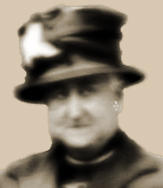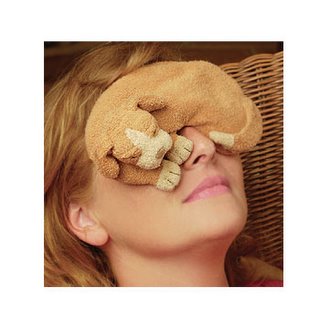"Oh, bless them. Aren't they brave?"
"On an occasion of this kind it becomes more than a moral duty to speak one's mind. It becomes a pleasure".
It would appear that the screens of our televisual devices are soon to be assaulted with a further series of the wholly execrable Beyond Boundaries.
Once again, Joseph and Josephine Non-Disabled Public will have the opportunity to derive "inspiration" from the fact that a dozen or so persons who happen to have impairments have put themselves forward for an adventure holiday.
No doubt all the impairments will again be of a highly visible nature. After all, the dramatic impact would be much diluted if, heaven forfend, any of the participants could pass as "normal". Where would the interest be in watching a group of people with - let us say for the sake of hypothesis - dyslexia, diabetes, bipolar disorder and RSI wandering about the African bush?
From whence would the frisson of voyeuristic distaste derive if the camera could not swoop in at every opportunity and focus at interminable length on the "unsightly" stumps of persons who are missing an arm/leg/eye/head (delete where applicable)?
The reactions of J & J N-D P to the last series fulfilled all of Lady Bracknell's and others' worst fears. Immediate and unwarranted assumptions were made that there is nothing that the average crip would enjoy more than an arduous trek through inhospitable jungle surroundings. Worse, it was assumed that we could all do it if we really tried. And that those of us who had the temerity to criticise such a marvellous programme were traitors to our own community.
(Lady Bracknell is reminded at this juncture of the occasion on which she visited a newly-disabled friend in hospital. Mr O had just been given some "encouraging" magazines to read, and was less than entirely enthused by their content. "I hadn't the slightest desire to go abseiling before I was in a wheelchair," he said. "Why on earth would anyone assume that my preferences have changed just because my legs no longer work?")
It is no more the purpose on this earth of disabled persons to make their non-disabled counterparts feel relieved that they themselves "don't have anything wrong with them" than it is the purpose of gay and lesbian persons to make their straight counterparts feel relieved that they have the "good fortune" to be heterosexual. In a truly equal society, such comparisons would be entirely meaningless. Non-disabled people are quite capable of feeling guilty about the fact that they take less exercise than they feel they ought to without any comparison with a handful of disabled people who happen to enjoy physical challenges.
No doubt, as last year, the thunderous voice-over at the beginning of the programme will conclude (in a tone of astonishment) with the words,
"And they are all physically disabled!!!!!"
So angered is Lady Bracknell by this nonsense that she is forced to descend to an unwontedly vulgar use of the modern idiom, and reply, "So bloody what?"
Even those of us who are proud of our political identities as disabled people have a very great deal more to offer the world than the simple fact of our impairments. We are, first and foremost, people. Our interests and our characters are as diverse as any reasonable person would expect to find in any other comparably large sector of the population. It does us no favours at all to be publicly portrayed as "overcoming" our impairments. Such a portrayal merely emphasises the disempowering notion that an impairment actually needs to be overcome if we are to function as valuable members of society. And that, dear readers, is utter poppycock.
In Lady Bracknell's considered opinion, Beyond Boundaries is only one step up - and a shallow one, at that - from the old end of the pier freakshows at which one was invited to marvel at the fact that a man with no arms could shave himself.















